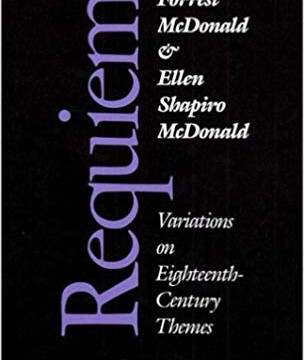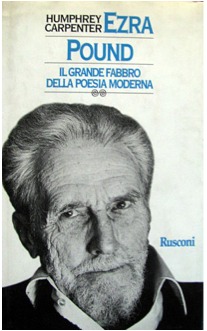Economists, with justice, are accused of holding a narrow, one-dimensional, and somewhat pedestrian world view. Noneconomic factors can determine how well a society is organized, say the critics. An efficient price system won’t solve all of society’s problems; there are also cultural and moral problems that can undermine society, and these have no economic fix....
Category: Reviews
All For Love
“Alas, that love should be a blight and shame To those who seek all sympathies in one!” —Shelley, “Laon and Cythna” With the publication of the first volume of an expanded edition of her letters in 1980, and now this biography, Mary Shelley’s reputation is being reconsidered. This renewed attention is not due to the...
The Two Enlightenments
Stanley Rosen may be every anti-Straussian’s favorite Straussian. Never mind that he denies his own paternity and affirms to his friends and critics: “I am not a Straussian.” Like the postmodern anti-Platonists he describes in his collection of essays, Rosen draws heavily on the school of thought he claims to transcend. One problem among the...
The Sociological Model of Law
There is an adage among lawyers and judges that the two commodities a consumer never wants to watch being made are sausages and justice. Donald Black, University Professor of the Social Sciences at the University of Virginia, disagrees. Professor Black is a sociologist, and he explains much of our legal system’s indeterminacy by examining voluminous...
What Makes a Nation?
When Fernand Braudel died in 1985, The Times of London called him “the greatest of Europe’s historians.” In spite of Braudel’s great merits, many would question this accolade. Indeed, he may be assigned a place among those contemporary historians who justify, by their oeuvre, the sociological school, and who therefore have “betrayed” the historian’s true...
Babes in Gangland
E.L. Doctorow is our loudest contemporary champion of the social novel, whose defining characteristic he posits as “the large examination of society within a story” of “imperial earthshaking intention.” (The genre’s American apotheosis is Frank Norris’s The Octopus.) Billy Bathgate is Doctorow’s latest, and if his publicist’s yowling chorus of “masterpiece” is a bit much,...
The Politics of a Death
It is difficult to think of a case comparable to the murder of Sergei Mironovich Kirov. Here one of the top leaders of a great country was killed—most probably by the wish of the supreme dictator, the murder being used as full or partial justification for the arrest, torture, exile, or execution of many, then...
Passion and Pedantry
“Lord, what would they say Did their Catullus walk this way?” —W.B. Yeats William Butler Yeats’s picture of the scholar is not a pretty one (“All cough in ink. All wear the carpet with their shoes.”) and literature does not give us many scholarly heroes. Most literary pedants are like George Eliot’s Casaubon; boring, impotent...
Objection Sustained
The interdisciplinary field of law and literature is burgeoning, and various academics are making grandiose claims. “The field envisages,” says Richard Posner, “a general confrontation or comparison, for purposes of mutual illumination, of two vast bodies of texts, and of the techniques for analyzing each body.” The pretensions of this fledgling movement, however, indicate that...
How to ‘Out G theG’
Colonel David Hackworth’s highest accolade is to call a man a “stud.” He is certainly deserving of the moniker himself. An Army volunteer at the age of 15, the recipient of a battlefield commission at 20, four times wounded before he was 21, a hands-on battlefield expert on counterinsurgency, an expert leader of men whose...
Wild About Budapest
Come down the Danube through a “painters’ paradise” of low hills, past a “bosky island,” around a bend where suddenly the spires and parapets and bustling quays spread before you “in a pearly, blue-gray light.” Glimpse the Royal Castle, its cupola “studded with stony warts, a suggestion of an old Magyar warrior’s semibarbaric helmet.” Debark...
The Ethics of English
“When a thing ceases to be a subject of controversy, it ceases to be a subject of interest.” —William Hazlitt The treason of the teacher of English: that is the principal subject of Professor Booth’s discourses over two turbulent decades in the academy. Dr. Booth, a temperate rhetorician, does not call this dereliction of duty...
As We Go Marching
” . . . Your tragic quality Required the huge delusion of some major purpose to produce it. What, that the God of the stars needed your help?” —Robinson Jeffers, “Woodrow Wilson” “When a term has become so universally sanctified as ‘democracy’ now is,” wrote T.S. Eliot in 1939, “I begin to wonder whether it...
“Enemies of Society”
“The essential matter of history is not what happened but what people thought or said about it.” —Frederic Maitland In the late summer of 1985, the San Francisco Bay area celebrated the 40th anniversary of VJ Day and the end of World War II. Part of the celebration consisted of a cavalcade of American Navy...
The Streetwalker’s Story
Prostitution may not deserve its reputation as the world’s oldest profession, but it has been around for millennia, appearing in virtually every society. In this revised edition of a book originally published in 1978 (under a slightly different title), Vern Bullough and Bonnie Bullough document the ubiquity and diversity of prostitution, tracing the practice from...
Good as Goldwyn
“They designed an entire solar system in just six seconds. It took God six days, if you believe the Old Testament.” —Gene Roddenberry in an interview “It’s not his life, it’s a fairy story,” wrote John Dos Passos of the life of Sam Goldwyn in a documentary section of Mid-Century (1961). Even though Dos Passos...
Waters of Life
The Arkansas River is born from melting snow on Mt. Arkansas at 13,795 feet above sea level in the state of Colorado. Rushing down through cataracts and gorges, it gathers strength from a multitude of rivulets and creeks to burst free from the mountains laden with silt. Across the Great Plains of eastern Colorado and...
Our Postmodern Age
Eliseo Vivas once said, “I would not for a minute pretend solidarity with men who do not realize that one of the essential marks of decency today is to be ashamed of being a man of the twentieth century.” He had no desire to turn the clock back; he was simply advocating that rather than...
Novel Ideas
“Nigger” is the word upon which Bill Kauffman balances and dances his first novel, Every Man a King. It is, to say the very least, a difficult word. It is a word denied to white lips in polite society, and is now heard only coming with any frequency from trash-mouthed blacks. The saying of the...
The Structure of Meaning
Levy’s latest and very ambitious new book is an inquiry into the fundamental characteristics of political order from two perspectives: philosophical anthropology and the political philosophy of Eric Voegelin. The outcome is a vigorous defense of our institutions and traditions. The anthropological perspective has its roots in Max Scheler’s work in the 1920’s and 1930’s....
By Blab Befuddled
Words cannot take us everywhere, nor should they. Before the most sublime truths, we grow reverently still. Confronted with bestiality, we shudder at the unspeakable. But in the Age of Blab, everything must be talked about.” Indeed, modem journalists consider it progress to be able to chat endlessly about depravities our wiser ancestors refused even...
A Cultural Cincinnatus
There are passages, even whole poems in Fred Chappell’s new collection for which there are clearly precedents in, or one might say kinships to, the work of other poets. The urbane chattiness of “Subject Matter,” for instance, makes no bones about it. It is nice to imagine how Auden would open a poem about the...
The Ethos of Freedom
“That’s just rhetoric!” So we dismiss statements we have little respect for. Readers of Tacitus’ Dialogue on Orators will remember that the Roman historians thought that eloquence is a sign of a free state. There was a time when the speeches of Burke and Canning, of Daniel Webster and Abraham Lincoln were studied in school...
The Other Jewish America
From the general media and Jewish weeklies published in most large American cities the reader will learn more than he cares to about the political and social doings of what Ze’ev Chafets calls “federated Judaism,” an interlocking directorate of the leadership of upscale synagogues, the fund-raising community federations, and the inevitable country clubs. These people...
Merlin of the Woods
The matter of the Celts has had a strong hold on the English-speaking imagination for a long time, at least since the publication in the mid-18th century of the forged Poems of Ossian; but it was a symbolic moment of great importance when Matthew Arnold told his Oxford audience how, on a seaside holiday at...
Blaming America First
Paul Hollander is dogged, if not downright mulish, in his intellectual focus. As is the case in Soviet and American Society and his celebrated Political Pilgrims, this collection of previously published articles and reviews explores the perceptions and beliefs of American intellectuals in regard to Marxist-Leninist countries. What Hollander lacks in the flourish and breadth...
The 31st President
George Nash, though still in his early 40’s, has become one of our most prolific American historians. His output consists of a seminal study of the postwar American Right, numerous essays on American conservatism, and since 1975 a multivolume biography of Herbert Hoover. His exhaustive research into Hoover has yielded an introductory volume of more...
The Straight and Narrow
“Lessons are not given, they are taken.” —Cesare Pavese Although subtitled The Invisible Revolution in the Third World, Hernando de Soto’s The Other Path is as much revelatory as revolutionary. For one who has grappled with the problems of Third World development, seeking to define and articulate a certain truth sensed to be hidden beneath...
Soviet Strategy
“He crucified noble, he sacrificed mean, He filled old ladies with kerosene. While over the waters the papers cried ‘The patriot fights for his countryside!'” —Rudyard Kipling, “The Ballad of Boh da thone” For 40 years two topics have dominated popular discussions of international conflict. The first is the specter of nuclear war...
Family Finances
Once a social ideal for many Americans—progressive reformers, labor leaders, enlightened businessmen like Henry Ford, and some New Dealers—”the family wage” has fallen into disrepute in recent decades. Under the spell of egalitarian feminists, America’s political and cultural leaders now reject as hopelessly “sexist” the notion that a man should earn enough to support his...
Those Who Can’t Do . . .
I wanted to hate this sustained attack on the academy, which condemns everything to which I have dedicated my life, but I loved every word. This man is a truth-teller, therefore he is shrill, obnoxious, abusive, aggressive, offensive, and absolutely right. His indictment spells out the following academic felonies: “teachers who don’t teach, students who...
Roots of Radicalism
“The purity of a revolution can last a fortnight.” —Jean Cocteau Magisterial works of history are almost always informed by a tragic sense of life. Some recall epochal transformations that were as lamentable as they were inescapable. Still others dramatize the clash of two valid, but irreconcilable, principles. Among the latter, certainly, are the best...
One Day in the Life
When I was 15 years old I read a book that shattered me. The book was called SS im Einsatz (“The SS in Action”). It was a nonfiction book, a 600-page collection of documents—memos, orders, dispatches sent to the units of Waffen-SS, reports from the sonderkommandoes in action in Germany and elsewhere. There were some...
An Audience of One
Any literary effort by David Slavitt is a complicated business for a reviewer. The complexity arises not immediately from the work itself, but from the prolific nature of Slavitt. To date, he is the author of 13 works of fiction, 14 books of poetry or translation, two books of nonfiction, at least eight pseudonymous novels,...
Updating Paley
Like many Englishmen of his generation, Charles Darwin in his youth was an avid reader of William Paley’s The Evidences of Christianity (1794). As Darwin formulated his theory of evolution, he lost his faith in Paley’s argument that nature manifests God’s wisdom and foresight. “The old argument from design in nature,” he wrote in his’...
New England Against America
“The fiction of Mr. Simms gave indication, we repeat, of genius, and that of no common order. Had he been even a Yankee, this genius would have been rendered immediately manifest to his countrymen, but unhappily (perhaps) he was a Southerner. . . . His book, therefore, depended entirely upon its own intrinsic value and...
Catching the Wry
According to Leon Edel, the art of biography is a “noble” endeavor. But in our celebrity-crazed era, when prurient interests have supplanted respect for artistic accomplishment, the most popular biographies are those emphasizing lurid details. Joan Peyser’s psychosexual exploration of Leonard Bernstein anticipated Arianna Stassinopoulous Huffington’s even nastier and more controversial reproachment of Picasso. With...
In Search of a Biblical Philosophy of Politics
Just what is a truly Christian, or biblical, view of politics and government, and what difference does it make for public policy? Doug Bandow, senior fellow at the Cato Institute, treats this and many other questions with a fresh perspective. Not to be pigeonholed, he works for a largely libertarian think tank but espouses policies...
Pax Through Strength
In the general collapse of humane studies that marks the declining decades of the 20th century, a few areas continue to produce important scholarship. One of those fields is Roman history, especially the history of the Roman Republic. Emilio Gabba in Italy, Christian Meier in Germany, Ernst Badian and Togo Salmon in North America, to...
The Invisible Veep
Exactly what Vice Presidents of the United States are supposed to do (and not do) always has been something of a political and constitutional mystery. As little as possible, is the recent election’s hint. But even in more demanding times the sanitized quip attributed to Texas’s John Nance (“Cactus Jack”) Garner, FDR’s first VP, that...
Holding the Fort
John Cardinal O’Connor, the distinguished and controversial head of the archdiocese of New York, has played an important role in affecting American politics, both inside and outside the Catholic Church. He is the pope’s point man in the battle for the soul of the US Church, and some say if an American were considered for...
Celestial Sights
It is a November evening in 1572. The Danish nobleman and astronomer Tycho Brahe is returning to his uncle’s house. As he notes that the clearer sky bodes well for resuming his observations after dinner, a strange, brilliant star suddenly catches his attention. In amazement, he watches it for some time, then: When I had...
The Tyranny of Loss
The title of Sara Suleri’s memoir, “Meatless Days,” refers to the Pakistani government’s attempt at conservation following its independence from India in 1947. Tuesdays and Wednesdays were decreed “meatless,” meaning no meat would be sold and supposedly none eaten. What it actually meant, recalls Ms. Suleri, was that butchers only worked that much harder on...
The Way We Do It
This book gathers important information on the politicization of the schools, even the elementary schools, at the cost of facts—and flight from the world. The means of politicization: “nuclear education” is widespread, according to London’s rudimentary evidence. He contacted over 300 major school districts, and 16 of the 162 districts that answered had formal nuclear...
Going Beyond Tink and Tank
Charles Edward Eaton, in New and Selected Poems, as elsewhere, is a remarkable poet, a fine metrist and stylist, and a close disciple of Wallace Stevens in artistic skill and finesse as well as in theory and topics. Many a poet who buys whole hog and pen Stevens’ often-prevalent view of poetics (and thus poetry)...
A Bright Shining Liar
“To be engaged in opposing wrong affords but a slender guarantee for being right.” —William Ewart Gladstone A quarter century has gone by since David Halberstam, foreign correspondent for The New York Times, won a Pulitzer Prize that he said should have gone to his friend and mentor in Vietnam, Neil Sheehan. In 1964’s spring...
One Hell For Another
Karlo Štajner spent seven thousand days in Siberia and learned nothing. Of course the reader is moved by the awfulness of spending all that time in the Gulag, but still he is left only with the experience of a man who survived. Yet, for better or for worse, for many of the named victims, Štajner’s...
Making History
The best historical writings, whatever their subject matter, have certain characteristics in common. All display a deft mastery of primary sources, building up from a solid base of fact without allowing the data to drag them down into pedantry. They also bear on their faces both an open and honest viewpoint and objectivity. That is,...
The Speechless Sick
Two-Step is a tall, skinny black man who has lived at the Nashville Union Rescue Mission for seven years. In nice weather he can be seen standing beside the Mission holding his pajama bottom up with one hand and doing a slow, rhythmical shuffle, hour after hour. He has been doing this since he was...
Pound Foolish
The question arises very early on and looms ever larger as one progresses through this thousand-page-long life: how did Humphrey Carpenter stand it? Pound’s range was from loathsome or contemptible at the beginning to hateful at the apex of his career, and finally to pitiable at the end. To have continued with this distasteful project,...




